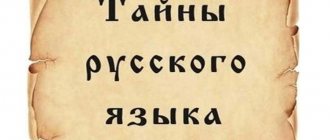The day I found out that BB King was no longer with us, I went home and spent the entire evening listening to his old records, enjoying the “chat” with one of my favorite guitarists.
After a couple of hours, I started noticing some great blues ideas that would go great with any jazz solo.
Today's lesson will be devoted to three classic phrases of B.B. King, which will be useful for all jazz guitarists who want to expand their arsenal of interesting moves and solutions.
Each example phrase comes with a description, tablature, and audio recording, so take your time working through each phrase to complete the solo from B.B. King posted at the end of the lesson.
Example of a blues solo by B.B. King
And finally, an example of a solo in the spirit of B.B. King against the backdrop of a jazz-blues progression in the key of Bb. Here you will find all three phrases that we talked about today. My advice to you: first learn each phrase separately well and only then combine them into a solo.
At first, you can play slower using a metronome. Once you reach the desired tempo, try playing along with the audio recording. And of course, don't forget about all this fun stuff when writing your own solos!
Did you like the lesson? Subscribe to the guitar lessons newsletter and learn to play the guitar with Guitar School.
Designations
- Back
Very briefly, so as not to prolong this already “dull” topic into lengthy discussions, let’s go over the basic notations. Moreover, you can analyze in great detail and qualitatively work out all the necessary musical knowledge here.
In the text of the school you will find several English words for which I could not find a decent translation without distorting the meaning. Some terms are quite new and in the Russian language there is no meaningful word that reliably conveys the true meaning, so I decided to leave it as is. If you are an experienced musician and you have ideas on how to replace these English terms with Russian words, please share with me.
Let's agree, for the convenience and efficiency of communication, I will write notes like this:
Do Re Mi Fa Sol La Si
The chord symbols will be capital English letters CDEFGA B.
In the jazz environment, they do not use the classical notations H and B , like B and B-flat . Exactly like others, such as: Fis , Des , moll, dur , etc. If we need the note C , we use the letter B. If you need B-flat , then just add a flat - Bb.
It is important to note that sometimes it is theoretically correct to use the notes F-flat, E-sharp or A-double sharp . But this is completely awkward to read, so there is an established set of most commonly used notes, chords and keys, even if this is not very true from a harmony point of view. For example, you are unlikely to find the key of B-sharp major in jazz music; it is much more logical to use C major instead. By the way, Prokofiev did the same thing




